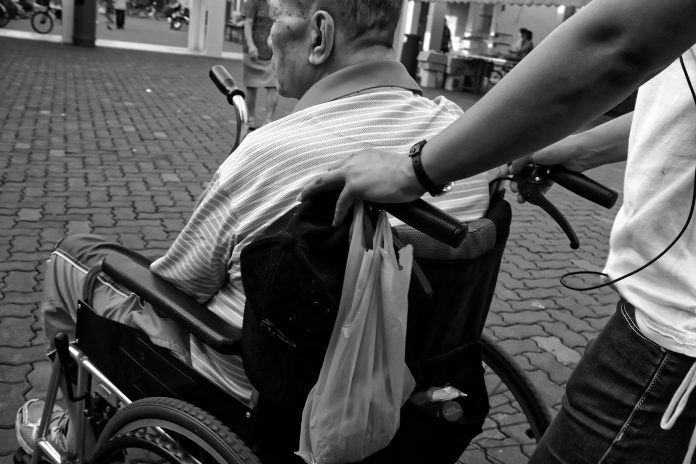A carer refers to those supporting family, friends, or anyone who cannot do things without help. It can be caring for an elderly relative or anyone who is frail, ill, disabled, or suffering from mental health problems.
Safeguarding is an integral part of being a carer. As a carer, part of your responsibility is to protect a person’s health, well-being, and rights, helping them to live free from abuse, neglect, and harm. At some point in your career, you may get into situations requiring a safeguarding response, such as witnessing or speaking up about abuse or neglect. Here’s what to consider when safeguarding as a carer.
-
Know the Signs of Neglect and Abuse
As a carer, you should know the signs of neglect and abuse. In most cases, it can be hard to detect these. However, you need to realise that these things can occur anywhere. Sometimes, the person causing the harm is not a stranger but someone close to the victim. There are instances when the perpetrator is someone in a position of trust and power, such as a healthcare professional.
Abuse and neglect can come in many different forms – sexual abuse, physical abuse, domestic abuse, emotional or psychological abuse, financial or material abuse, and discriminatory abuse. Meanwhile, neglect means ignoring physical, medical, and emotional care needs. Not getting access to support, care, health, and educational services are also considered a sign of neglect. There are also cases of self-neglect, where the person intentionally neglects their basic needs, such as avoiding food, neglecting personal hygiene, etc.
If you have a good enough reason to believe that a person is at risk, try talking to them first and see if there’s anything you can do to help. They might not be comfortable talking about it straight away. But once you have confirmed that abuse is happening, you can pass it on to social workers who specifically handle these cases.
-
Be able to Manage Records
Carers should also know how to manage records. Even though record keeping in a care business is not required, it’s crucial for providing proper care. By having a written record of actions and events, you’d be able to improve care while complying with safeguarding regulations. When record keeping, ensure you don’t miss as much detail as possible.
All healthcare records need to be accurate and up to date. There are instances that more than one staff is responsible for caring for one resident. Therefore, ensuring all information is factual and updated can help ensure that all staff members are aware of the latest data. All information that the carer will input must have a date and signature and include all discussions with the person receiving the care.
Health records refer to personal data about the physical and mental health of the patient, including information about the person’s health status. The data can be recorded in many forms, including digital and handwritten notes and monitor charts, all with the patient’s consent.
-
Be in the Know
Working as a care worker is challenging, but it’s a rewarding experience. Regardless of the type of care work you wish to be working for, the job requires patience and interpersonal skills. So, before pursuing this career, you must ensure you are knowledgeable enough to provide care for people.
Consider enrolling in a safeguarding course for care work. These courses can equip you with relevant information for your role. For instance, one of the significant aspects of the training course is to teach you how to identify vulnerable people or those at risk. As mentioned, abuse and neglect can come in various forms, so you must know how to spot signs and take the proper course of action.
The Safeguarding Course will also discuss common signs of neglect and abuse, the proper way to report abuse, establish trust with the person you care for, and many other things. Undergoing a safeguarding training course is also one way to show employers that you truly understand the care worker’s responsibilities.
-
Know the Carer’s Rights
Before you work as a carer, you must be familiar with the Carer’s Rights. You should be aware that you have certain rights, such as employment rights, rights to an assessment, and receiving direct payments. Parents caring for children with disabilities can request flexible work schedules. You also have the right to request flexible work from your employer if you are a carer for an adult who lives with you.
Carers who provide regular care will have the right to an assessment of your needs as a carer. For instance, if more than one carer is offering regular care in your home, you have the right to an assessment. Those with parental responsibilities for disabled children are also entitled to a carer’s assessment.
Direct payments refer to the cash payment from a Trust given to a carer after assessing that the carer requires social services. Instead of offering services directly, the Trust can make direct payments to the carer.
-
Assess Situations in a Timely Manner
Assessment of the carer and the person they care for should also consider the well-being of both persons. The assessment is an opportunity to determine the situations and circumstances of the person being cared for and decide whether to offer support to prevent abuse or neglect. For instance, they can provide training for the carer about the condition of the person they care for or provide support to help them to offer care safely.
Any risk of neglect or abuse, both for the carer and the person they are caring for, could increase if the carer is isolated and is not receiving any support from friends, family, professionals, or care staff. Domestic abuse can happen between the carer and the cared person.
Local trust will ensure that all carers are aware that they are entitled to an assessment. They will also take into consideration other things, such as the carer’s work responsibilities, study, or leisure, when conducting the assessment.

























